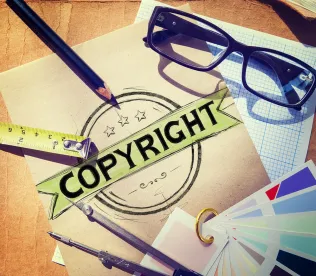On December 7, 2021, Senators Geovanna del Carmen Bañuelos de la Torre and Cora Cecilia Pinedo Alonso, members of the Parliamentary Group of the Partido del Trabajo, presented an initiative with draft decree, seeking to amend Articles 29, 33, 148, 209, 210 and 229 of the Federal Copyright Law (LFDA).
The first provision to be reformed is aimed at reducing the term of protection granted by the LFDA to enter, in order to further standardize Mexican law with international treaties. Although such standards are minimal, and Mexico has the power to implement higher terms, the 100 years currently established in the Law seem excessive, in comparison with International norms.
For this reason, under the argument that the term established by Article 29 of the LFDA of 100 years after the death of the author is considered excessive, the draft includes a proposed reduction of the term to 70 years post mortem. The explanatory memorandum that the current term exceeds the minimum requirements established by the International Treaties to which Mexico is a party, where the Berne Convention establishes a minimum term of 50 years after the death of the author, and the USMCA establishes a minimum term of 70 years post mortem.
Article 33 of the LFDA, which, for purposes of the proposed amendment, deals with the term of the transfer of economic rights, which, according to the current wording, may only be agreed for more than 15 years, when justified by the nature of the work or the magnitude of the investment required.
Legislators have proposed adding that, in the event the parties wish to agree on a term longer than 15 years, they must provide evidence that justifies the longer term, at the same time as they request its registration in the Public Registry of Copyrights. The National Copyright Institute (INDAUTOR) would then be in charge of evaluating the information provided and has the authority to approve or deny the requested term.
The current way in which transfers and registrations are carried out in Mexico is considered to work correctly. leading some to believe that such reform would be unnecessary and counterproductive, since INDAUTOR does not evaluate, but only records the term of the assignment. For this purpose, it is implicitly understood that the production of works of all kinds are costly activities, such as the edition of books, art productions, musical productions, and above all, the production of audiovisual works. Empowering INDAUTOR to evaluate the viability of the validity of the transfer of rights in relation to these types of works, and being able to decide what is costly and what is not, may have a negative impact on society and the industry. It may simply be considered bureaucratic and pernicious.
Article 148 of the LFDA regulates parody, satire, pastiche, dissemination of news and teaching in relation to the right of reproduction, as well as reproduction and making available by libraries, galleries and museums for preservation, research, study or interlibrary loan purposes. The proposed change to Article 148 would be to include in an exception for figures that are considered Human and Constitutional Rights.
Said amendment to sections III and V of the former article, specifies that already disclosed works may be used, provided that the normal exploitation of the work is not affected, without the authorization of the holder of the economic right and without remuneration, invariably citing the source and without altering the work, in the following cases:
In section III, which stated “Reproduction of parts of the work for scientific, literary or artistic criticism and research,” “commentary, parody, satire, pastiche, and dissemination of news and teaching,” is added.
In section V, which stated “Reproduction of a single copy, by an archive or library, for reasons of security and preservation, and which is out of print, and in danger of disappearing,” the provision of copies to the public is included, adding, in addition to libraries, galleries or museums, for purposes of preservation, research, study or interlibrary loan.
Finally, by amending several articles of the LFDA, such as 209, 210 and 229, INDAUTOR will be granted several powers, such as the power to promote and disseminate works that are part of the public domain, as well as to facilitate public access to culture “through the limitations of copyright and related rights determined by the Law, so as to allow access to works for the community in collaboration with public cultural and educational institutions.” They also intend to grant powers to INDAUTOR to provide technical advice on copyright matters to public educational and cultural institutions, in order to facilitate the classification and access to works in the public domain category. Finally, they classify the claiming as a proprietary right with respect to works in the public domain as copyright infringement.




 />i
/>i

